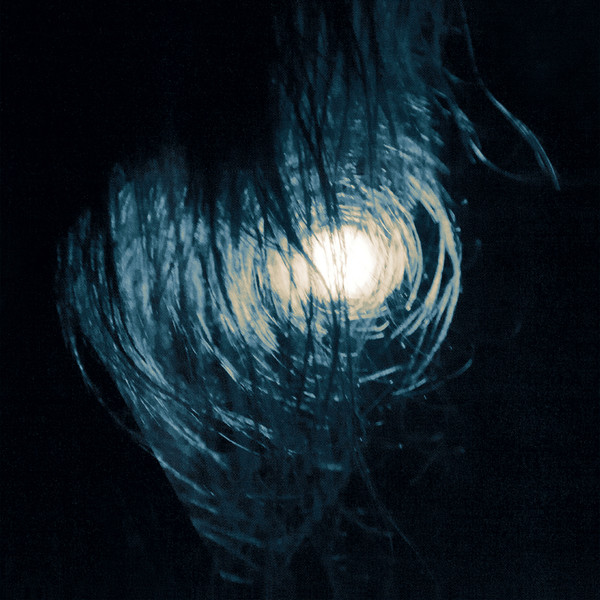Black metal’s gradual assimilation into common parlance, or more importantly into the ear holes of young bearded, Colombian coffee sipping urban Americans, has muddied the conversation a bit. The branches of the black metal tree have darted off in a massive array of directions since its origins in the darker recesses of Europe’s great decade for metal: the 1980s where one upmanship morphed singing into growls and tore guitar solos into serrated demonic shredding. Somewhat infamously, US bands like Brooklyn’s Liturgy and San Francisco’s Deafheaven have stretched and mutated the genre to fit a millennial heritage where emotionally charged post-rock and soppier strands of symphonic rock wield as much relevance as Venom or Iron Maiden. Liturgy have even cited the lofty likes of Glenn Branca as a key influence, while lead man Hunter Hunt-Hendrix spoke to the New York times of a desire to replace "death and atrophy" in the music with "life and hypertrophy." (To his credit, it’s perhaps harder to feel convincingly depressed and angry about the world when you’re part of a billion dollar oil legacy.)
On the flip side however, bands like Wolves in the Throne Room from Washington state, or the stellar Altar of Plagues from Cork in Ireland have built epic towers of weird mutant rock on black metal’s foundations. Finnish band Oranssi Pazuzu fall nicely alongside the latter pair of examples, and their latest release Värähtelijä could in fact represent a potential high watermark for the current phase expansive black-infused metal.
Now, for all this talk about black metal, Värähtelijä could arguably disappoint anybody looking for a hit of sharp blast beats and agonised tremolo picking from a group of corpse painted long hairs. Several sections of the album only barely approach a typical sound for the genre, with only Jun-His’ vocals perpetually in the true black metal shape of a hellhound’s bark after a heavy night out. Opener ‘Saturaatio’ pulls back the curtains on what could be the deep centre of a classic ISIS track circa Oceanic, crowning into an inferno of hellish noises aided by windy swirls emanating from keyboardist EviL and bassist Ontto. Halfway through the 12 minute track though, the song enters a markedly proggy middle section. EviL switches synth noise for a downright Jon Lord-ian drawbar organ, while a guitar unleashes a trippy wah-wah solo. A third section of dense bass riffage and cavernous screams follows, ending with a slow diminuendo towards the light at the end of the tunnel. It’s a mutant beast, part Xasthur, part Bardo Pond, and even part Deep Purple.
The imminent threat of Oranssi Pazuzu diverting into a properly black metal explosion haunts the first listen to Värähtelijä, lending a heftier weight to gentler tracks like the wintery title track, or to ‘Lahja’ (‘Gift’), where shamanic ritual drumming and an unexpected vibraphone provide an underbelly over which guitars and vocals sketch out hints of heaviosity without ever stabbing at the jugular, Mayhem style. Then there’s the ten minute closer ‘Valveavaruus’. It’s dotted with the kind of airy vacant space and jangly distant guitars more often found in a cosmic Acid Mothers temple breakdown. And then that proggy organ texture returns, and the band continue to shapeshift repeatedly over the course of the song, climaxing with a coda of droning heavy bass, industrial techno drum pounding, and a fog of unwieldy sheets of distorted guitar. As has become customary, it would be easy to crowbar in a few references to krautrock at this point, but there’s so much more to it than that. It’s certainly repetitious, heavy and forceful, but the convoluted structures and looser edges retain their narcotic effects as felt in American post-rock and British prog. What’s more these dudes manage it without ever coming across as emotionally cliched or needlessly complex (a fate that’s on occasion befallen the likes of Sweden’s death metal expansionists Opeth).
The centrepiece of the record is obviously the 18 minute ‘Vasemman käden hierarkia’, which starts as a slice of cosmic metal that leaps between symphonic sections before taking a left turn around the seven minute mark into a five minute interlude of simmering ambience and guitar glissando. The climactic tail end of the track inevitably winds up being one of the record’s defining moments, and the towering cries, wailing synths, and crushing chords all melt away revealing the sound of a crackling fire. The very best moments of Värähtelijä are still for the most part the fucking heavy ones, but Oranssi Pazuzu are dealing with a much broader visionary scope here. It’s not Venom or Watain or Darkthrone, but rather the likes of Swans and Neurosis (and perhaps the recently released double album from Ulver) that naturally spring to mind as contemporaries to this music. Värähtelijä is most definitely descended from trope-riddled black metal, but no other band is anywhere near taking the music in a more interesting and open-ended direction while retaining its brutal core.



